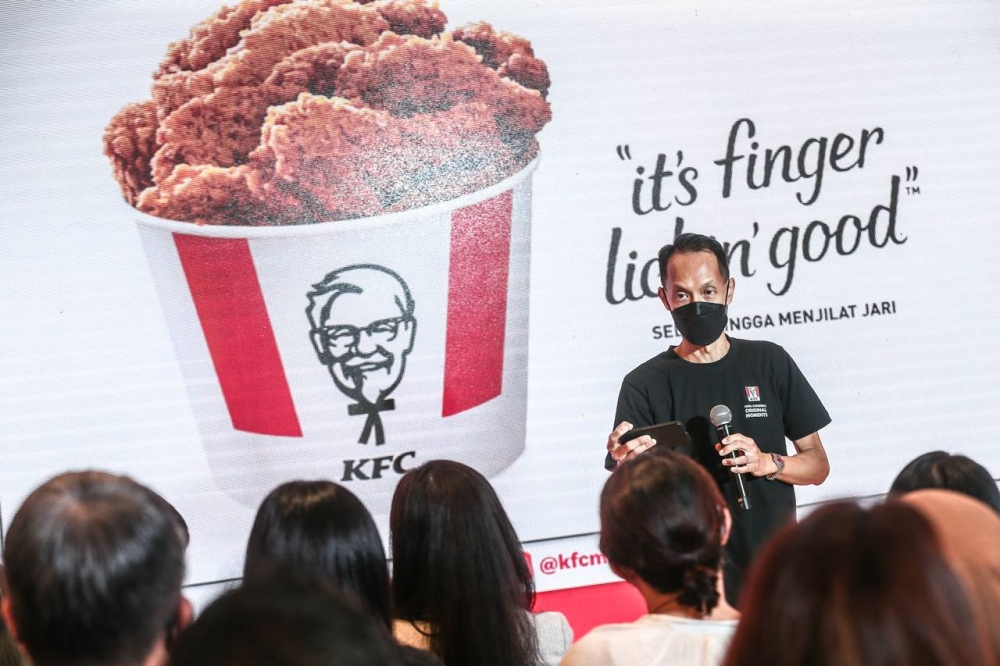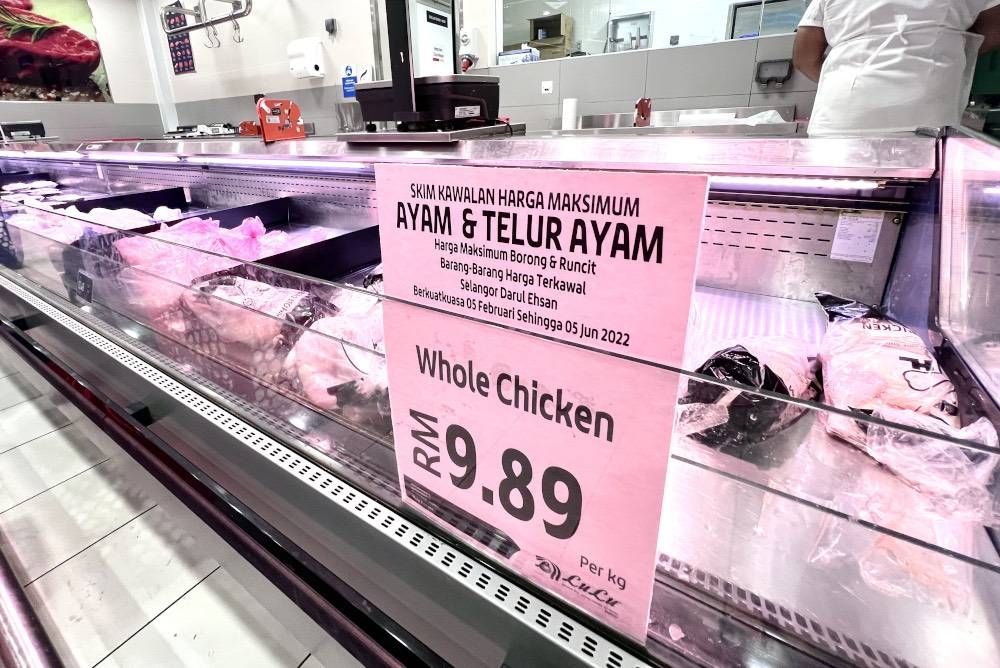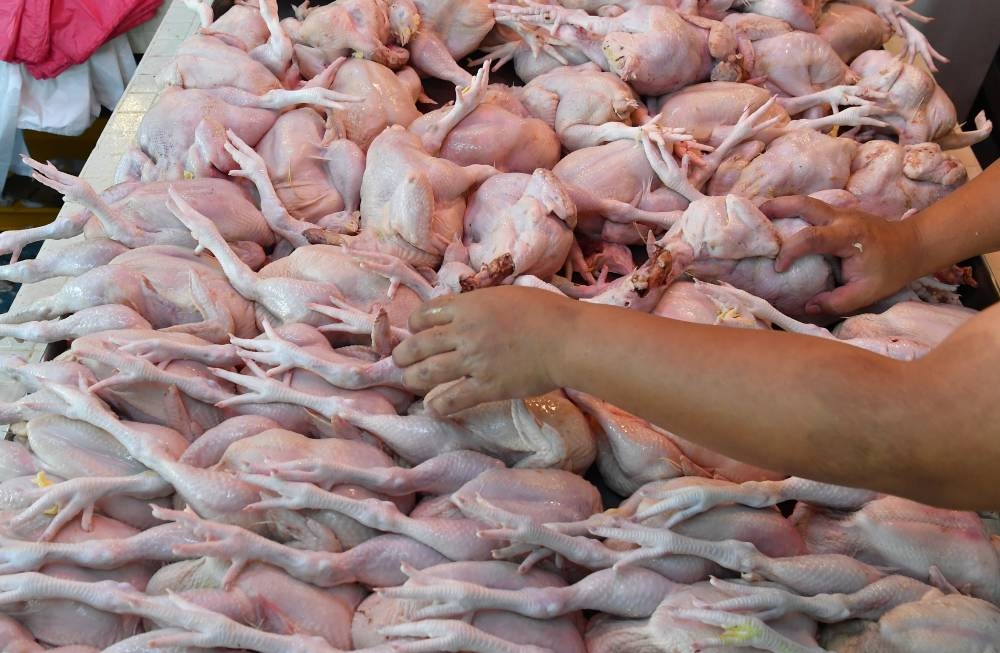KUALA LUMPUR, May 26 — Fast food outlets in Malaysia are feeling the effects of the chicken supply shortage, which has left their menus a few items short.
Several fast food chains pooled by Malay Mail said they had to drop items from their menu or replace them with similarly priced items, while they monitor the market and hope for the supply chain to return to normal.
Brand head of KFC Malaysia, Stephen Chew, said they did not have a timeline as to when the problem would be resolved and were working round the clock to find alternatives.
“KFC Malaysia regrets to inform you that we are still facing a supply shortage and most of our menu items are limited in stock. “Some of our meal items might be replaced with other items that are similar in value, while our packaging may be different than usual,” he told Malay Mail.

Chew said the after-effects of the Covid-19 pandemic had caused global supply chain disruptions, including for Malaysia’s poultry industry, the consequences of which had inadvertently been passed on to the retailers, including KFC Malaysia.
Asked about the potential for price increases, he said: “The price increase of raw materials may be one of the inevitable outcomes of the supply disruption across all industries.
“However, as the nation’s favourite fried chicken brand, KFC Malaysia will always find ways to ensure affordability and value while continuously offering exciting and innovative Finger Lickin’ Good menu items to our customers.”
Chew said in order to adapt to the current circumstances, KFC Malaysia launched the Jimat Siang promotion which offers discounts on signature items from as low as RM7.99 from Monday to Thursday between noon and 2pm.
“The KFC Zinger Double Down, KFC Crispy Tenders and KFC Cheezy Twister are also now available at all KFC stores nationwide while stocks last,” he added.
Meanwhile, Texas Chicken Malaysia’s head of public relations, Junaidah Mazlan, said they too were experiencing supply disruptions and operating with a limited supply on a daily basis.

She said Texas Chicken may run out of items soon, depending on demand.
“As our chicken is supplied fresh daily by local halal-certified suppliers who are required to meet stringent food quality and safety standards, as well as our product size specifications, we regret that we may run out of bone-in chicken periodically, depending on the demand and supply dynamics of the day.
“Rest assured that we are working closely with our suppliers to resolve this matter and that we are also sourcing for alternative menu options to ensure product availability,” she said.
Nando’s Malaysia’s chief commercial officer Chai Hui Fung said they have been experiencing shortages and tight supply for more than half a year and introduced a variety of vegetarian options to diversify the menu.
“It is a challenging time for all food and beverage players and chicken stocks have been tight for at least the last three quarters. Currently, we are managing as best we can as it is important to be flexible. “We have always had contingencies in place, such as having more than one supplier and maintaining a close working relationship with them. We also have a diverse menu, such as burgers, wraps, chicken tenders and a variety of vegetarian options with the most popular being Portobello Mushroom with Tofu burger or wrap and Veggie Carnival Bowl,” she said.
As for price increases, Chai said Nando’s Malaysia had no plans to do so for now, but were monitoring the market closely.
“It entirely depends on how our suppliers react,” she added.

The same can’t be said for McDonald’s Malaysia whose chief marketing officer, Melati Abdul Hai, said they had not experienced any shortages and supply was still good.
She attributed this to their diverse supply chain borne from strong relationships with suppliers that they have worked with for years, pointing to the recent Hari Raya Aidilfitri celebrations during which the fast food chain did not run out of chicken.
“We are still able to sustain ourselves and have not experienced issues with shortages as we have strong relationships with our suppliers to ensure continued supply. This was evident during Hari Raya when other restaurants experienced shortages while we didn’t. Consumption at our outstation stores was good throughout that time.
“Our supply chain management works closely with the suppliers and has a long-term outlook on supply and stock. There are no fears for prices being raised for the ayam goreng specifically,” Melati said when contacted.
“If we do run out of stock, there will be notices in our restaurants to inform our customers.”
On May 23, Prime Minister Datuk Seri Ismail Sabri Yaakob said Malaysia will stop the export of 3.6 million whole chickens a month until production and prices stabilise.
He also announced that the government would look into creating a buffer stock of chicken and optimising cold storage facilities that are owned by the Ministry of Agriculture and Food Industries (MAFI).

Besides that, he also announced that the government would abolish approved permits (AP) of poultry to increase opportunities for the involvement of importers to provide more sources of supply, simplify the subsidy claim process for chicken farmers, and increase the number of slaughterhouses abroad to increase the supply of chicken.
He added that the government is aware of reports that there are cartels controlling prices and chicken production among the larger companies.
He said that the Malaysian Competition Commission (MyCC) has already been tasked with launching an investigation that is expected to finish in June.






















